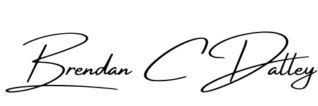“But store up for yourselves treasures in Heaven, where moths and vermin do not destroy and where thieves do not break in and steal.” Matt 6:20
Even as a child many of us implicitly defined success as having strength, power and influence. We seem to instinctively want others to be like us and to accept us unconditionally. How else do you explain the prevalence of the selfie? For many, this view, presented everywhere as accepted truth, doesn’t change much as we age. Bruce Springsteen said it best “Poor men want to be rich. Rich men want to be kings and a king ain’t satisfied till he rules everything”.
The message is pervasive, even if we don’t agree with it. Modern media convinces us that appearance is more important than substance, fame more important than faithfulness and strength more important than gentleness. Even a perfunctory look at reality television shows that people are willing to do all manner of ridiculous things for fame and its trappings.
A sneaking suspicion
The trouble is that as we age, some of us begin to suspect that there is more to this life than being the big kid in the sandpit or having the most toys. The truth is that the king in Springsteen’s song is never satisfied. Malcolm Forbes has the spurious distinction of being the first person to say “He who dies with the most toys, wins.” Not unsurprisingly, he was a wealthy man when he said it. Being wealthy though, does not preclude you from being wrong.
I prefer the updated version of this well worn statement. ‘He who dies with the most toys….is still dead.’ The reason I like it is because it hints at the fact that there is more to a successful life than the accumulation of goods. David Lee Roth of Van Halen fame said it just as well “Money can’t buy you happiness, but it can buy you a yacht big enough to pull right up alongside of it”.
If the best that wealth and goods can do is make being miserable more comfortable, then clearly our value must come from elsewhere. I know it sounds very middle class to suggest that money isn’t important. A critic might say “spoken like someone that doesn’t have money problems”. The trouble with this argument is that I am not arguing for each of us to take up a monastic life. Clearly, as lockdown has shown, the absence of money is a huge problem.
Success or comfort?
My argument is that if you are seeking to define yourself purely by your wealth and power, then you are on very unstable ground as the verse above from Matthew’s Gospel points out. We all need an income to create the world we desire for ourselves and our loved ones. This is important and significant. If, however, financial success is all that drives you, then the satisfaction you desire will elude you.
Perhaps the lyric that best defines the emptiness felt by an outwardly successful person, whom on reaching the top of the mountain, discovered that he was still empty, is from I am I said by Neil Diamond:
“ Did you ever read about a frog who dreamed of being a king… and then became one?
Well except for the names and a few other changes,
If you talk about me, the story’s the same one.
But I’ve got an emptiness deep inside and I’ve tried but it wont let me go.
Now I’m not a man who likes to swear, but I’ve never cared for the sound of being alone.”
Success needs to be based upon something much more personal and stable. It should be based on something that cannot be taken away by those outside of ourselves. Without wanting to be judgemental or harsh, the obvious illustration of the failure of wealth alone to give you purpose is the spate of suicides of Fund Managers and Stock Brokers that sadly occur after every major financial crisis.
The importance of values
The first step for anyone seeking to redefine success is to establish what your own true, core values are. The simple reason for this is that if you define success as living according to your values, then win, lose or draw, if your values are intact, then you have been a success. If your value is in your character, then the presence or absence of wealth and outward adornments means very little.
Each of us is different and so each of us will value different things. There will be some shared values that culture, religion, family and experience breed into us, but essentially we are free to value what we wish. Acceptance and Commitment Therapy (ACT) puts great emphasis on values and provides some very useful tools to help you identify your core values. There will be a link at the end of this post for those that are interested.
A redefinition
From my perspective, the clearest path to success is in choosing core values that improve the lives of not just yourself, but everybody around you. Valuing each person, regardless of colour, gender, orientation or religion, seeking justice for all, acting in kindness and humility, providing for family and offering service create a strong foundation for success in my mind. If you add to this curiosity, generosity and genuineness, then you are well on the way to hope, peace of mind and contentment.
These are values that, once grounded and established in you, cannot be taken away. If you are financially successful, then you can be comfortable as well as successful with your values to protect you. If you are not wealthy, you are still more successful than a rich person with no real values. You are just less comfortable.
“To know even one life has breathed easier because you have lived, this is to have succeeded.”
Ralph Waldo Emerson
Links
For further information and activities regarding Values and Acceptance and Commitment Therapy, go to:
What is ACT and Mindfulness? Find Out Here | ACT Mindfully
Mindfulness (actmindfully.com.au)
A values based exercise by author of The Happiness Trap Dr Russ Harris
The pain of Imposter’s Syndrome » The Good The Bad and The Unrelated


👍
Great post buddy, another great quote when Homer Simpson gets some money, he exclaims – “let’s go buy some happiness”
Thanks pal. Got to love Homer. He says what we all feel.
Pingback: Life Momentum- Something I took for granted » The Good The Bad and The Unrelated